Power of Attorney
A Power of Attorney is a written authority given by one person (the “Donor”) to another person (the “Donee” or the “Attorney”). This document, which enables the Attorney to carry out certain tasks that the Donor would otherwise be able to do if he was there in person, sets out the powers granted to the Attorney and can be either general or limited.
The most frequent use of a Power of Attorney is in connection with the sale or purchase of property abroad and is generally given to a lawyer in the country where the property is situated. It will usually be drawn up by the foreign lawyer to whom authority is to be given because a Notary Public in this country cannot be expected to have knowledge of the laws of that country or its language or to be familiar with its formalities regarding Powers of Attorney.
A Power of Attorney is an important legal document and it facilitates the transaction of business that would otherwise require the Donor to be there in person. However, it has the potential to give rise to serious legal and financial consequences for the persons signing it if it is badly drafted or if it is misused by the Attorney. It is important, therefore, that you understand the legal, financial and taxation implications of any intended foreign transaction before you take any step, particularly the giving a Power of Attorney to a foreign lawyer or other person whom you may never have met. As the Notary Public in Northern Ireland is neither the draftsman of the foreign Power of Attorney nor your legal adviser, it is a matter for you to have the Power of Attorney, indeed any foreign language document which you intend to rely upon, properly translated and explained to you before going to the Notary.
Powers of Attorney for use in Europe tend to be very wordy and can run to several pages. They appear to cover every possible eventuality. However, they can also contain hidden dangers such as the power to assign the Power of Attorney to third parties which may not have been in the contemplation of the Donor.
Please see the section on How to get Documents Notarised.
